Connecting to the future:MC Donates 600 Million Yen to Kyoto University Startup Support Program Finding Societal Solutions and Boosting Japan's Economy
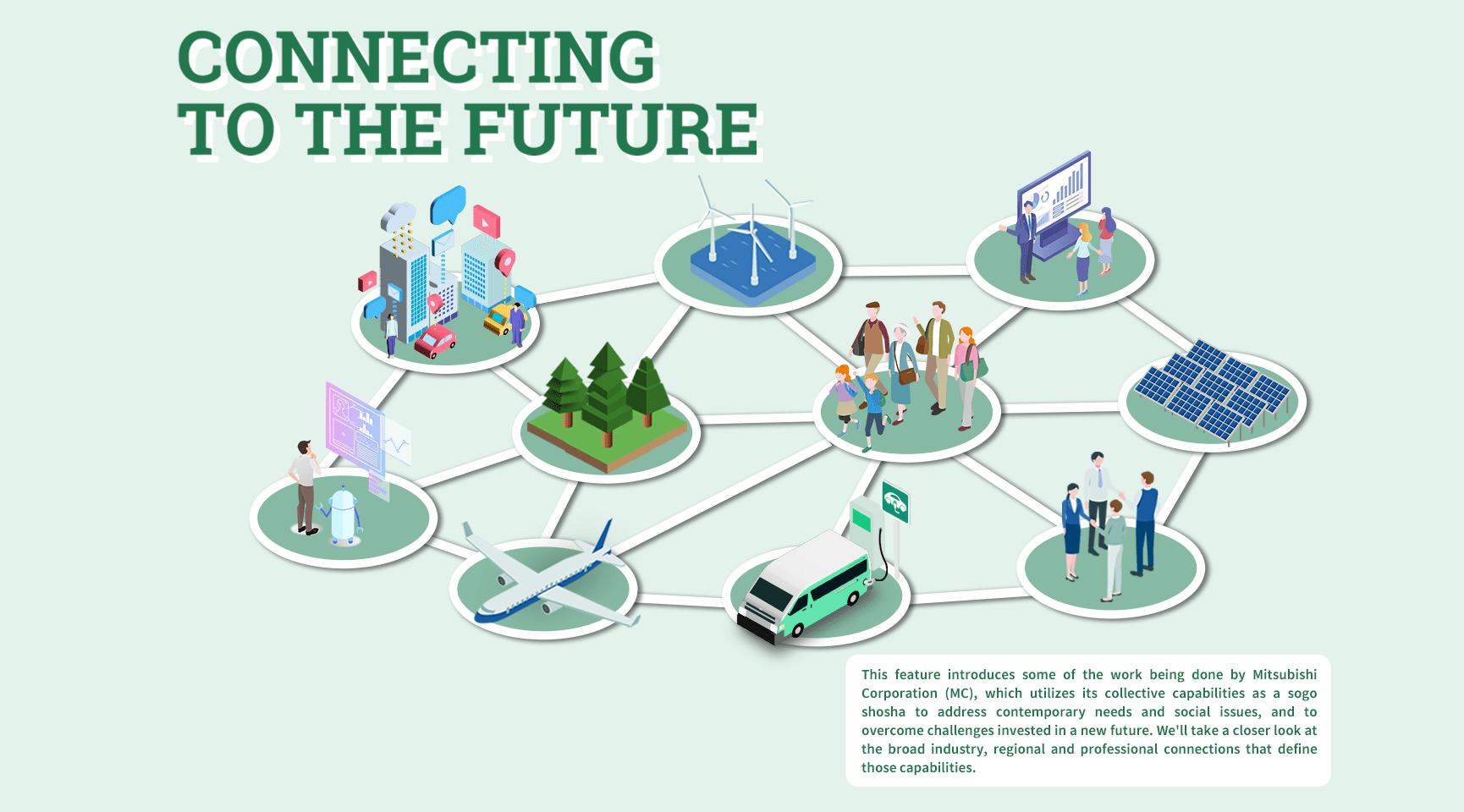
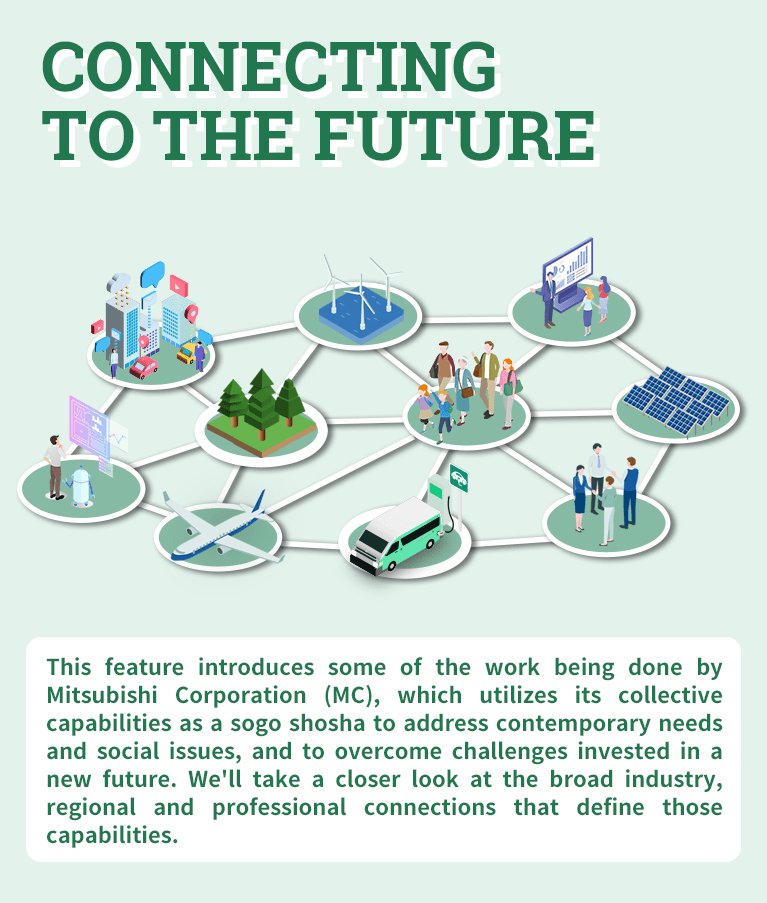
Creating the Future with Climate Tech vol.3 MC Donates 600 Million Yen to Kyoto University Startup Support Program Finding Societal Solutions and Boosting Japan's Economy
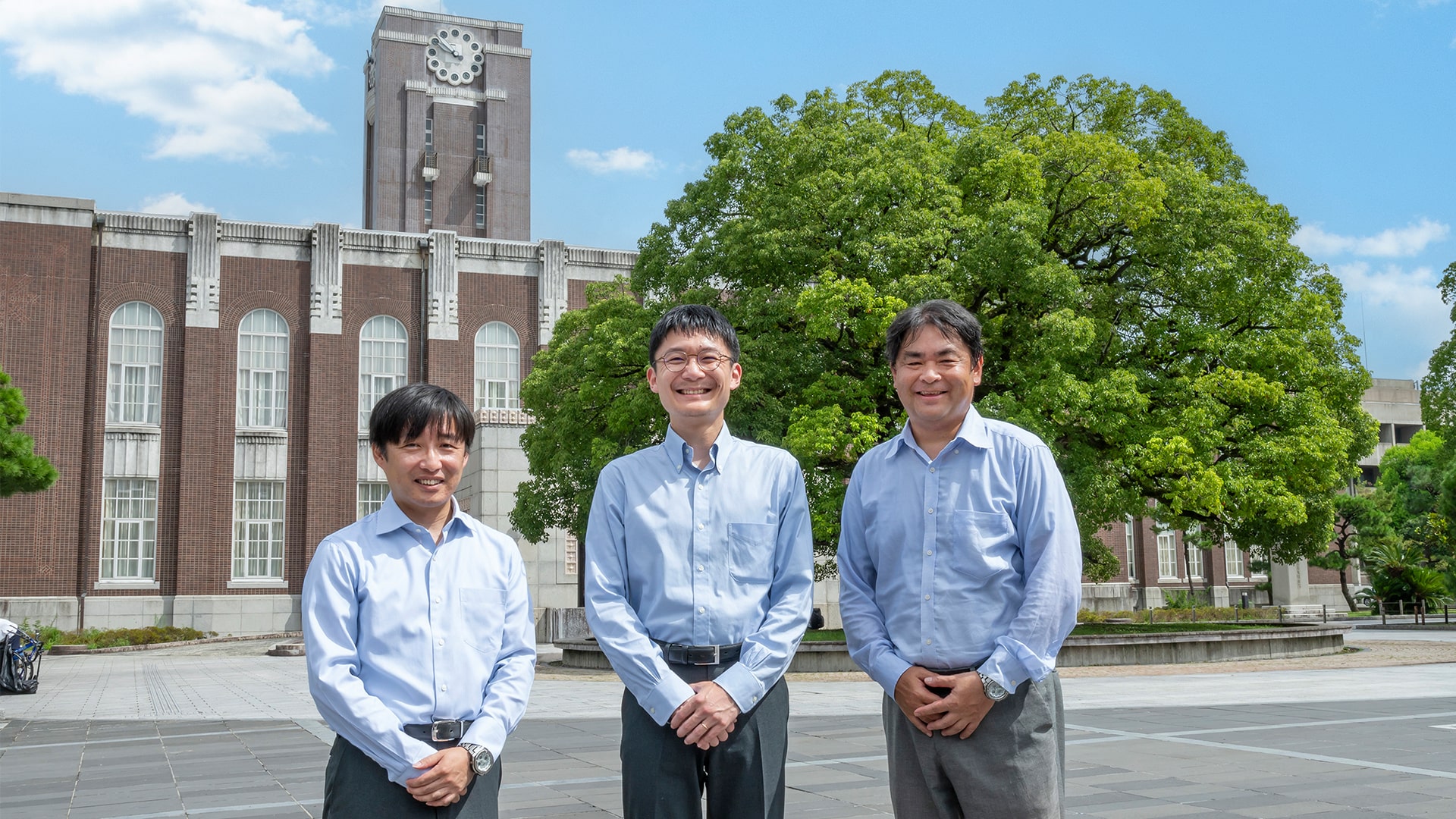
Educational institutions and other organizations are getting a lot of attention for their R&D technologies, which could help us find solutions to climate change and other complex, societal problems. In April 2023, MC announced that it would be donating 600 billion yen to the "Kyoto University-Mitsubishi Corporation Startup Catapult" (Startup Catapult), a program that takes advantage of the university's research findings to support new businesses. MC has also committed personnel and other resources to the university to assist startups born through the latter's research projects. Volume 3 of our series features a roundtable discussion with two MC employees involved in the program and two core members of its leading body, Kyoto University's Office of Society-Academia Collaboration for Innovation. They share their thoughts on this new partnership between industry and academia and the impacts it should have on business creation.Interviewer: Kazuhiro Sekine (GLOBE+ Editor in Chief)
- Roundtable Participants
-
Osami Kono (Acting Manager, Strategy Group, Office of Society-Academia Collaboration for Innovation, Kyoto University)
Teruki Kobayashi (General Manager, Startup Support Division,Office of Society-Academia Collaboration for Innovation, Kyoto University)
Yasutake Kurihara (Senior Manager, Intelligence Office, Corporate Strategy & Planning Department, Mitsubishi Corporation) *Online participant
Wataru Hatakeyama (Deputy General Manager,Startup Support Division, Office of Society-Academia Collaboration for Innovation, Kyoto University)*On secondment from MC
- Interviewer
- Kazuhiro Sekine (GLOBE+ Editor in Chief)
KyotoU a Poor Birthplace for Startups?
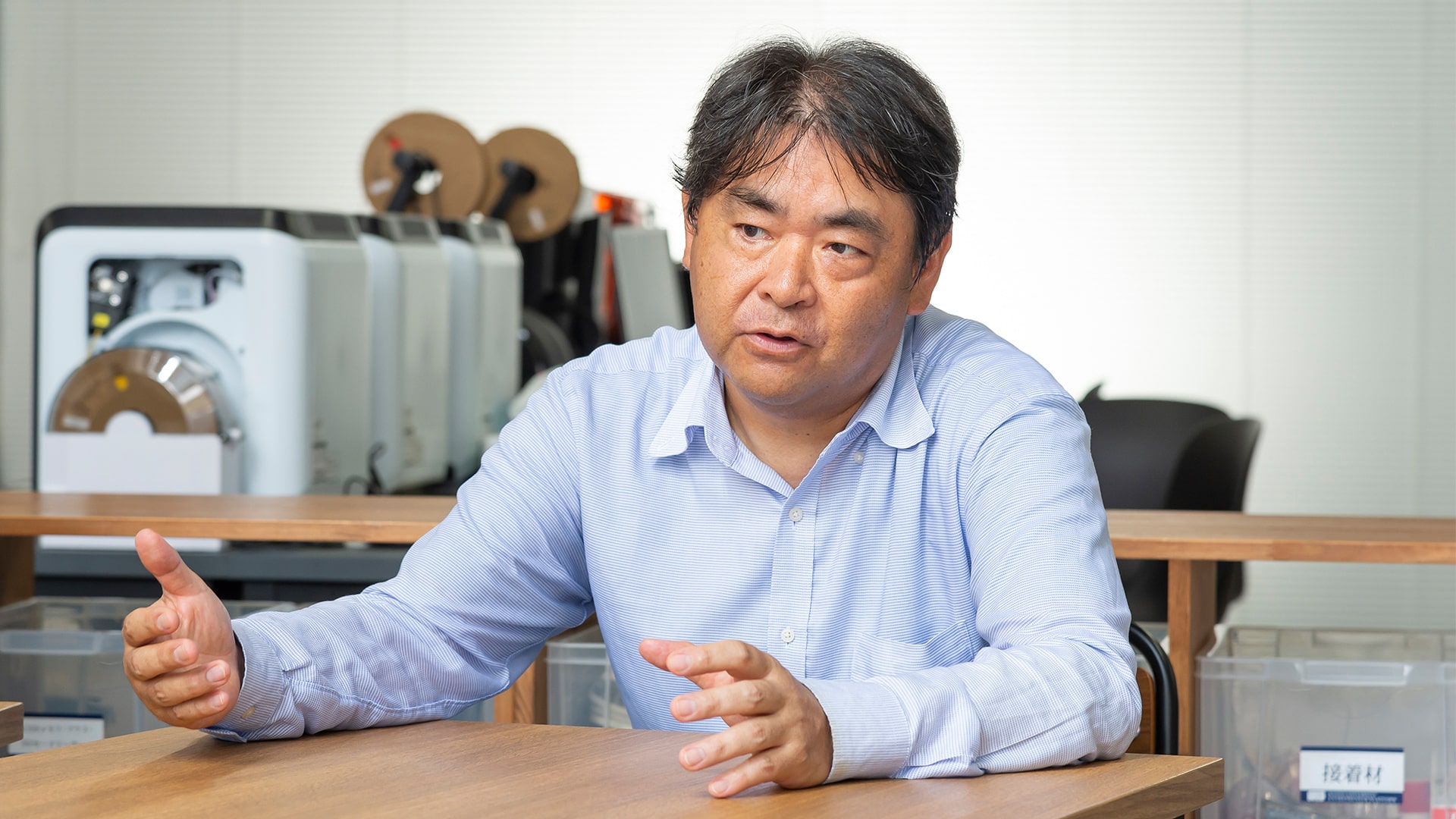
—— I always had the impression that Kyoto University's strength was in research, so I was surprised to learn that it's also passionate about supporting entrepreneurs.
Kono Kyoto University is a leading academic institution in Japan that has a solid foundation in basic research, including Professor Tasuku Honjo's work on immune therapy, and Professor Shinya Yamanaka's work on iPS cells, for which he won a Nobel Prize. On the other hand, the university has tended to lag behind other institutions when it comes to applied research and practical applications, and it has been notably slow in promoting startups. Although it has some joint ventures with large corporations, none of its researchers have launched startups of their own. This could have something to do with the university's reputation for being very research oriented. In the past, it has been up to Japan's business community to develop practical applications for the research findings of its academic institutions, but times are changing. If Japan hopes to address today's societal challenges, then clearly its traditional relationships between academia and industry will need to evolve. The aim of Kyoto University's Office of Society-Academia Collaboration for Innovation is to connect the school's intellect with industry and create mechanisms to promote societal adaptations of the results achieved through its research. In 2016, the office began a large-scale incubation program to support the establishment of new startups. Kobayashi This was a new framework designed to help Kyoto University actively commercialize its research results, and it was extremely effective. Over the six-year period from fiscal 2016 to fiscal 2021, the incubation program adopted 50 projects, 35 of which have now grown into new companies. That's a 70% success rate in launching startups, which suggests that the university's capacity for business incubation is finally gaining substance.
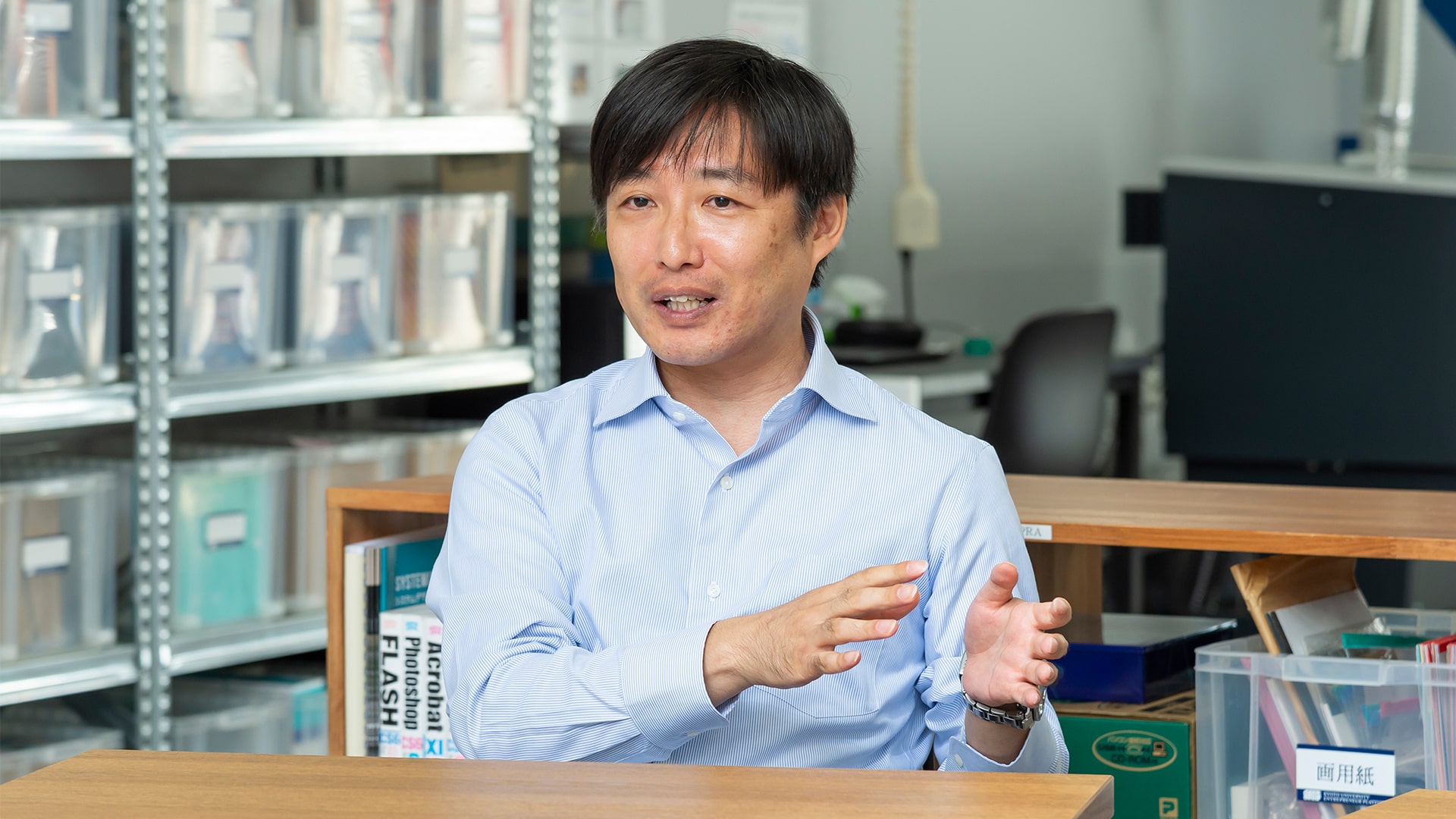
—— What was behind the launch of this new entrepreneur support program, "Startup Catapult?"
Kono When it concluded its incubation program at the end of fiscal year 2021, Kyoto University began consulting with more than a dozen enterprises about how to continue assisting with the establishment of startups. Unfortunately, it's very difficult to get companies to commit hundreds of millions to projects that are uncertain to be commercially viable, so the talks didn't go very smoothly. That is until we were contacted by MC. After some serious discussions with the shosha's representatives, we realized that our ideas on supporting startups were resonating with them, and that the technologies that MC is focusing on are a match with Kyoto University's strengths. Thanks to MC's involvement, we were able to launch "Startup Catapult," with MC's donation of 600 million yen covering the program's operating expenses.
Up to 20 Million Yen per Team and Specialized Support Staff
——Please explain the program's concept and why it is called "Startup Catapult."
Kobayashi The aim of the Startup Catapult program is to commercialize Kyoto University's research findings by committing up to 20 million yen per year to each of the school's projects that has business aspirations. It will be a five-year undertaking covering fiscal years 2023 to 2027. A condition for program participants is that for each candidate project, the lead researchers and those on the business side (i.e. the "Producers") must submit a joint application. This is because formulating a startup effectively demands that preparations for both the R&D and the business launches be carried out in tandem with one another. The project teams that are selected will receive funding for one year. Their progress will be monitored by specialist advisors from Kyoto University's Office of Society-Academia Collaboration for Innovation, which will also help the projects to develop intellectual-property strategies and support them in other ways. Kono As its name implies, the program is designed to propel startups forward and ensure that they hit the ground running. We want them to already have a great deal of momentum by the time their products or services reach the market.
—— If that's the idea, then "Catapult" is certainly a good name for it. Exactly what will these advisors you mentioned be responsible for?
Kobayashi They'll have a number of roles, all of which will help the school's research findings evolve into viable businesses. For example, they'll match the projects with the best private enterprises, identify the right people to manage the businesses, connect the project members with financial institutions, help them build relationships with local authorities, and so on. They'll also provide assistance with respect to intellectual property, such as managing patents and transferring technologies. Incidentally, Kyoto University's Office of Society-Academia Collaboration for Innovation has a section that's dedicated to supporting the school's business investments, and all the employees assigned to it, myself included, have experience working for banks, trading companies and other enterprises. As of this fiscal year, Mr. Hatakeyama has also been part of that team.
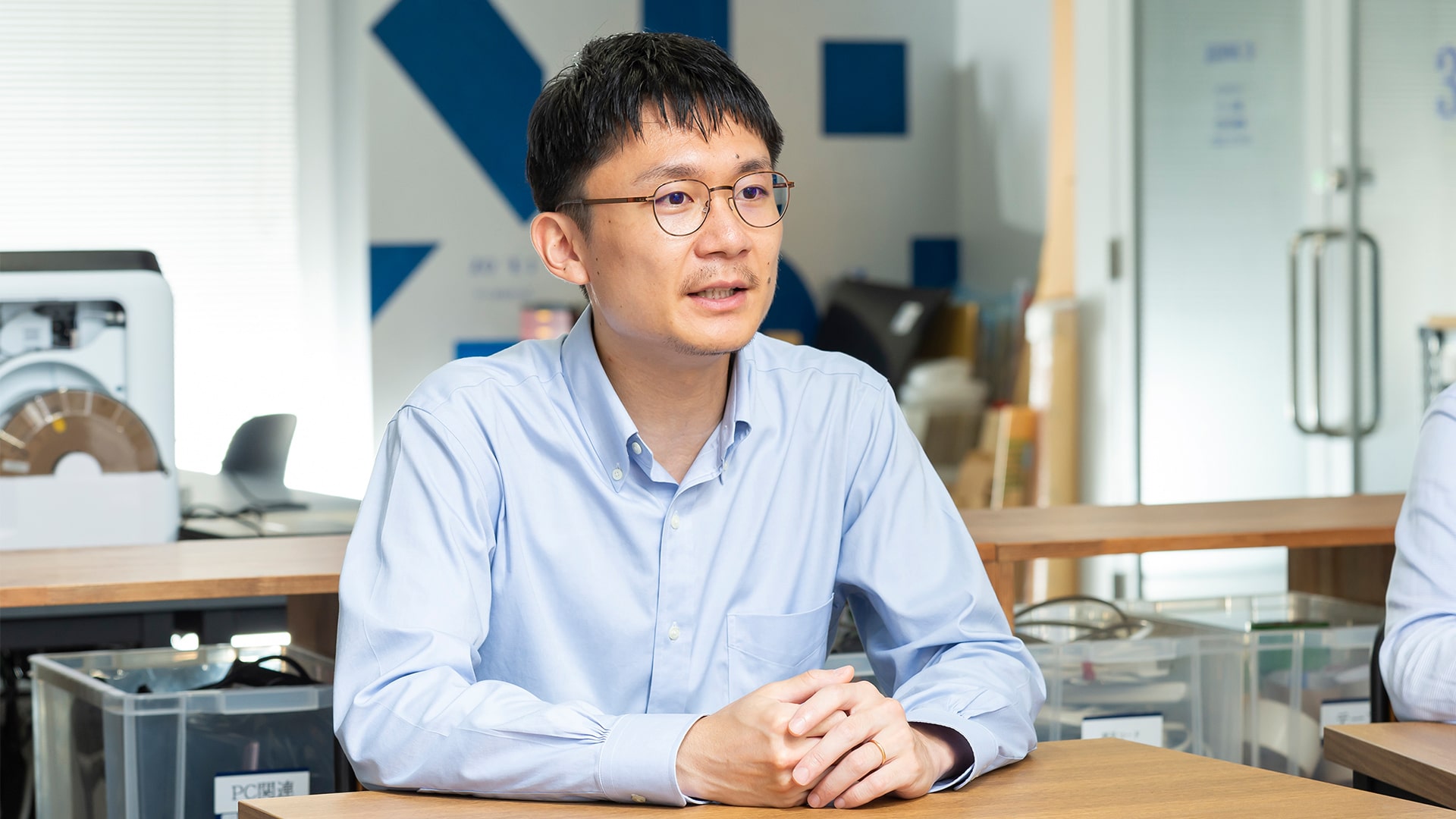
Hatakeyama I was seconded to the section from MC. Japan's sogo shosha are broadly engaged in all kinds of businesses and industries, and as a shosha man myself, I'm determined to do my part in matching the projects with the most appropriate companies and professionals, and in leveraging MC's international networks. After all, I think that's what will be expected of MC, and I hope that all of the candidate researchers and entrepreneurs will take full advantage of the assets that MC brings to the table.
MC's Aims in Donating 600 Million Yen?
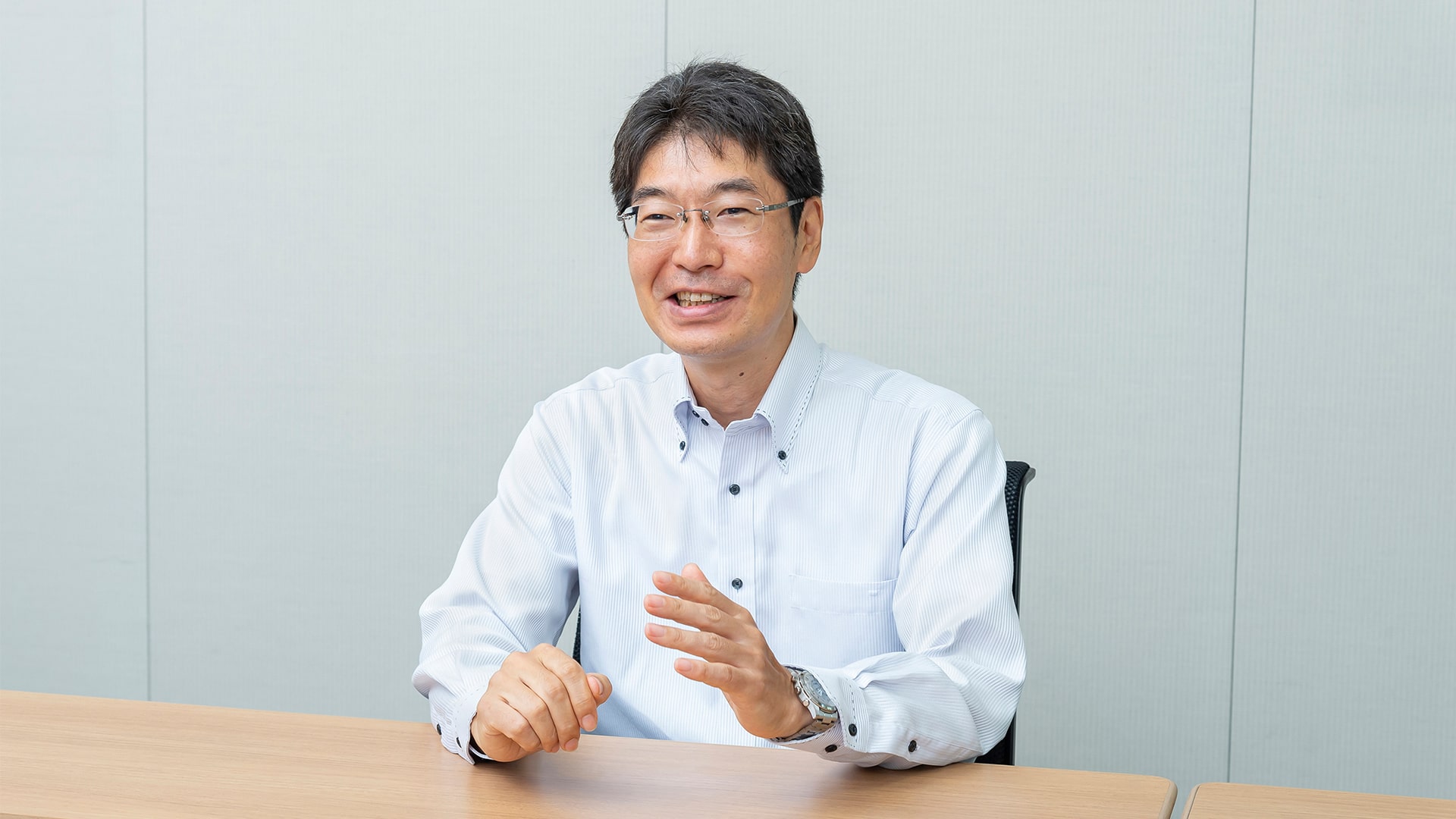
—— It's an astonishing amount, 600 million yen. What are MC's thoughts and aims with this program?
Kurihara There are two reasons why MC has contributed to this program. The first is that the company is acutely aware of the fact that societal challenges are growing increasingly complex and diverse. Climate policy and other issues that have impeded our progress in recent years are extremely sophisticated and complicated, so what's needed are promising research findings and technologies that could lead to solutions. Unless we identify those things and swiftly develop practical applications for them, our civilization will not survive. At MC, we recognize how serious this situation is, which is why Kyoto University's philosophy and powers of execution resonate so strongly with us. Through this program, the school is demonstrating how committed it is to applying its research in ways that will benefit the world and support entrepreneurs. The second reason is our aim to help make Japanese industry and academia more internationally competitive. Japan is not a nation blessed with a wealth of natural resources, and up to now its economic growth has been driven by its home-grown technologies and the impact they have had on strengthening its industry. The world has come to recognize and laud Japan as a nation built on science and technology. If we hope to enhance that reputation and contribute further to the international community, then we must refine Japan's capabilities in the research and tech sectors and, if possible, create new industries. To that end, I think Kyoto University's role and functions will be extremely valuable. Stronger industry in Japan will undoubtedly be a big boost to growth in its private sector, benefitting companies like MC, and the creation of new industries should also help to revitalize local communities.

—— How significant are donations as a means of supporting universities?
Kobayashi Usually, businesses and academic institutions either collaborate on research or the companies contract it to the schools. In such cases, the aims and direction of the research will be extremely limited, but when a business supports a school through a donation, the school is free to allocate the funds in any manner it pleases, as long as it satisfies the business's intentions for them. That means the money can go towards a wide range of research and technology. At Kyoto University, we appreciate the fact that MC trusts us to use its donation as we see fit, and that it recognizes our potential for coming up with new ideas that will lead to advances that benefit society. This has made us even more determined to commercialize diverse and promising research findings.
—— In the future, is there any chance that MC could collaborate with the businesses launched by the Startup Catapult program?
Kurihara MC donated to the program strictly for the reasons I mentioned, so there is no guarantee that it will collaborate with any startups that arise from it. But having said that, MC does have high expectations for the program's new businesses exposing it to both seeds and possibilities. MC's mission is to understand the impacts that tech innovations will have on its existing operations and identify its future fields of focus. I'm hoping that as MC tries to meet the needs of the applicant research teams and help them find solutions, we can come to the most mutually beneficial relationship. Hatakeyama Working in step with researchers as they go through the process of taking their ideas and findings to market is a new learning opportunity for MC, and I believe that it will stimulate growth of a business portfolio that provides for future interests all over the world. My secondment to the Startup Catapult program has rekindled my fascination for academia and given me a keen sense of its possibilities. Another thing I'm excited about is discovering what new and unexpected results will come from sustained connectivity between industry and academia, even outside the Startup Catapult framework.
Hopes for Applicants in New Fields and Heightened Awareness Among Researchers
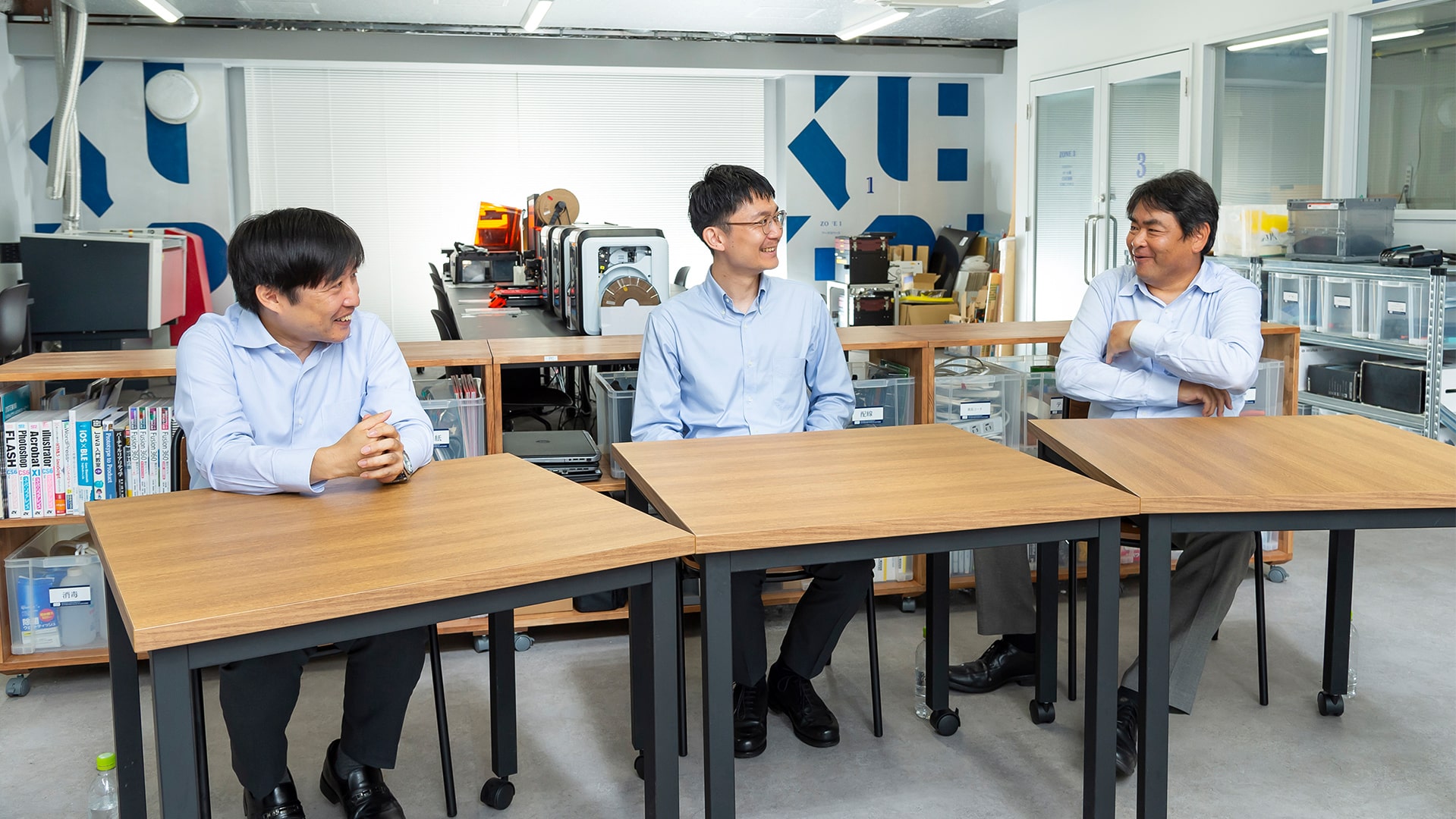
—— The program is currently assessing its first round of projects. What has the experience taught you so far?
Kobayashi Roughly 20 projects applied during the program's first round of recruiting, which ran for about two months, starting in mid April, 2023. The applicants came from a wide range of fields, including the life sciences and energy, but the one thing they all had in common was their desire to address societal challenges through both their research and the resulting businesses. The assessment process has involved Kyoto University's instructors inspecting documents and interviewing the researchers. We expect to announce which projects we'll be going with at the end of September, and the program will commence its support for those projects in October.
—— What are your expectations for the program's subsequent rounds of recruiting?
Kono I'm hoping that all of the researchers will be even more proactive about commercializing their findings. I think that thanks to the Startup Catapult program, a lot of researchers are starting to understand the know-how that's required to commercialize their work, and they're realizing for the first time that there are indeed pathways for them to do that. I'd be delighted if by following the program's first round of support, more researchers felt encouraged to apply in the future. There are a number of fields in which Kyoto University has no track record in the creation of startups, some examples being artificial intelligence, quantum computing, and DX (digital transformations). So I'd love to see more applications coming from those fields. Kurihara I've heard that Kyoto University has about 4,000 instructors and researchers. When you think about all the areas of untapped research and tech that represents for MC, you really get a sense of the tremendous potential this program has. If it encourages more researchers to embrace the entrepeneurial spirit, then it could promote more efforts to commercialize ideas in fields that we haven't even considered yet.
—— I understand that this initiative won't be restricted to the KyotoU-MC partnership. Can you expand on that?
Kurihara Sure. I mentioned earlier how our goals are to address complex societal problems and enhance Japan's international competitiveness, but obviously MC could never hope to achieve those goals on its own. Furthermore, Kyoto University is not the only school or research facility with promising R&D technologies, so expanding this cooperative concept to other businesses and academic institutions should vastly enhance its potential. In the future, we'll be looking to invite a wide range of companies, organizations, universities and other entities into the fold.
World Changing Innovation, from Kyoto and Japan
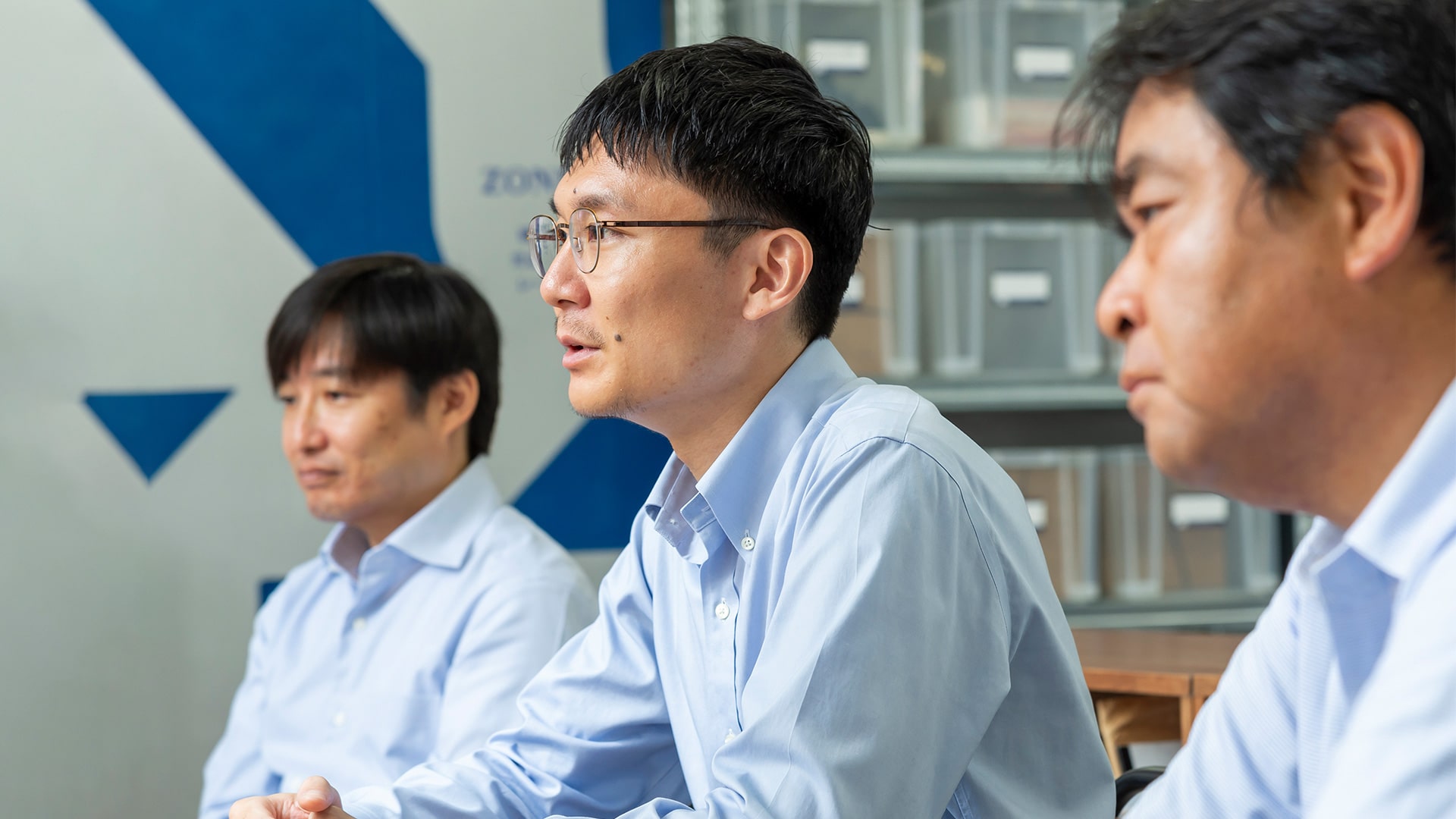
——The theme of this series of articles has been "Climate Tech," so I'd like to ask you to share your thoughts on climate change, from the perspectives of Japan's academic community and sogo shosha.
Kono We're aware that climate change is the most serious threat to humanity's survival. Fortunately, some of the leading research that's being carried out at Kyoto University is also in that space, and in recent years the work has even given rise to a number of climate tech startups. Some examples include Kyoto Fusioneering, which is active in fusion energy, EneCoat Technologies, a developer of the thin, next-generation "perovskite solar cells," Symbiobe, a company that utilizes natural biomass resources and photosynthetic organisms to provide CO2 fixation solutions, and Tiem Factory, which produces heat-insulating materials called aerogels that are at least 90% air by volume. Our goal is to leverage Startup Catapult to provide the world with even more impactful solutions in the years ahead. Hatakeyama We're not going to see any magical technologies that solve the climate crisis in one fell swoop. A diversity of stakeholders, including both government and corporate interests, are going to have to pool their expertise across all disciplines and encourage a change of mindset amongst the general public. That pool of know-how will need to span both the natural sciences, like physics, biology and chemistry, and the social sciences like economics and sociology. We must declare an all-out war on climate change. To help society smoothly adopt the findings and technologies from universities and research facilities, the sogo shosha will need to apply their varied industry know-how and networks and traverse the road to decarbonization one step at a time.
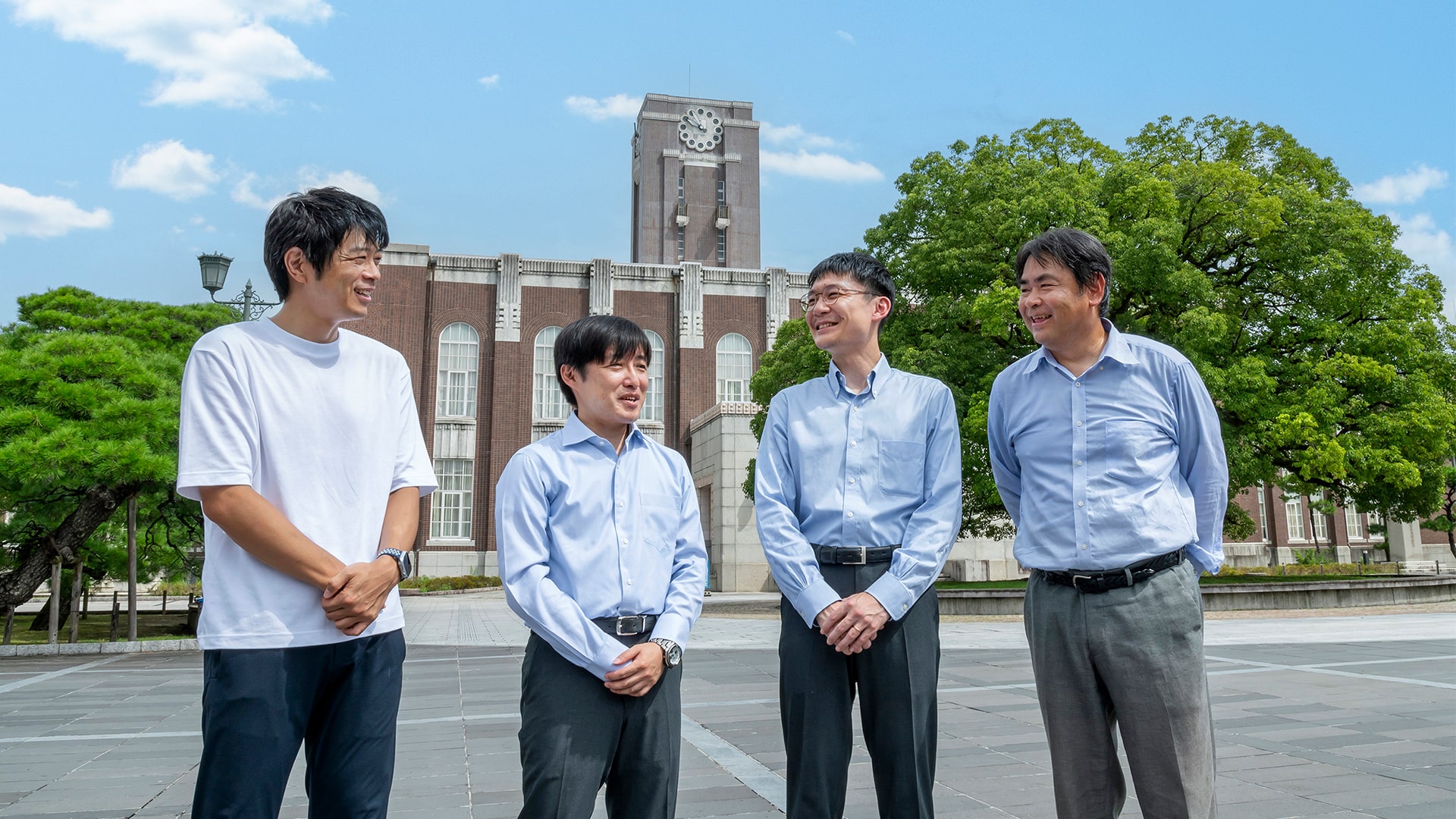
—— Now that Startup Catapult is underway and has the potential to reshape Japan's future, how would each of you sum up your feelings about the program?
Kono The influence of Japan's economy has continued to decline over the last three to four decades. My expectations of Startup Catapult are that it spur innovations of such magnitude that they could even trigger a restructuring of global industry, because if we want this program to help revitalize Japan's enterprises and its economy as a whole, then it will need to be that impactful. Kobayashi In roughly the last half century, American stocks have enjoyed sustained growth, while Japanese stocks have basically plateaued. There are a number of reasons for this, but I think one of the main causes is that industry leaders in the US will often change with the times, whereas Japan's industry leaders have tended to hold on to those positions indefinitely. We're determined to do all we can to support the Startup Capital program, so that it can produce companies with the kind of remarkable growth potential capable of leading and rejuvenating Japan's economy. Hatakeyama To truly make a country stronger, you need an environment that continually fosters new, unrivalled industries and businesses. Those environments exist today in places like Silicon Valley, Tel Aviv and Singapore, but we've yet to see one emerge here in Japan. My hope for this program is that it helps create an ecosystem for startups to grow and prosper in our country. Kurihara There are promising discoveries being made at Japan's universities and research institutions, so I'd like this program to connect the country's diverse stakeholders and help get those discoveries to market. If we can develop a Japanese "startup ecosystem" in that fashion, then our country's industry and future will have much more room to develop, and we will be better equipped to contribute to the world at large. The first step will be to make sure this joint initiative of Kyoto University and MC succeeds, so it's going to take some dedicated teamwork.
-
Creating the Future with Climate Tech vol.1
Investments in Breakthrough Startups the Key to Achieving 2050 Goal -
Creating the Future with Climate Tech vol.2
The Launch of One of Asia's Largest Funds Accelerating Growth Investments into Climate Tech Companies -
Creating the Future with Climate Tech vol.3
MC Donates 600 Million Yen to Kyoto University Startup Support Program Finding Societal Solutions and Boosting Japan's Economy
